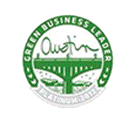In October, Insogna CPA was notified of its inclusion in the Expertise.com Best Accountants in Austin list. Out of over 170 accountants ranked for this award, Insogna CPA was nominated via customer referral and was then ranked #18.
“Our goal is to connect people with the best local experts. We scored Austin Accountants on more than 25 variables across five categories, and analyzed the results to give you a hand-picked list of the best.” the Expertise website states.
Selection Criteria
- Availablity
- Qualifications
- Reputation
- Experience
- Professionalism
It’s an honor to be named among the winners and receive a score of A+ for reputation and professionalism,” commented Chase Insogna, CPA, and managing partner. ” We truly love helping our communities members and providing the best services we can to clients.”
- Availablity
- Qualifications
- Reputation
- Experience
- Professionalism

It’s an honor to be named among the winners and receive a score of A+ for reputation and professionalism,” commented Chase Insogna, CPA, and managing partner. ” We truly love helping our communities members and providing the best services we can to clients.”
Our Other Awards













